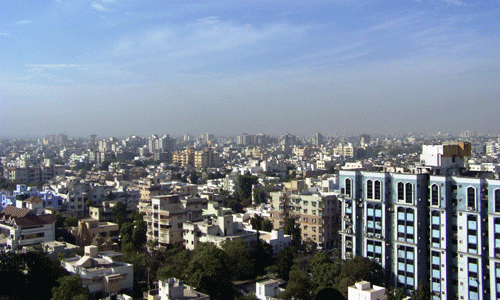By: Ravi Sinha
 Track2Realty: When the Reserve Bank of India made the announcement of allowing External Commercial Borrowing (ECB) in affordable housing, including slum redevelopment, there was an optimism and euphoria that cheaper money coming into the much-needed segment of real estate would redefine the property market in general and in the process help the country meet the housing shortage.
Track2Realty: When the Reserve Bank of India made the announcement of allowing External Commercial Borrowing (ECB) in affordable housing, including slum redevelopment, there was an optimism and euphoria that cheaper money coming into the much-needed segment of real estate would redefine the property market in general and in the process help the country meet the housing shortage.
Much water has flown since then and the affordable housing could not get the benefits due to the defined parameter of below Rs. 25 lakhs as such projects are not feasible in the metro cities like Mumbai.
However, the Mumbai developers who were looking up to get the benefits of raising cheaper money for the slum redevelopment projects sooner realised that the intentions of the government were not beyond the populist rhetoric. Even after months of waiting for the clearance by the RBI, the Union Housing Ministry is yet to draft the guidelines for the same.
The RBI had set a limit of US$1 billion for FY2012-13, but the housing ministry is yet to issue guidelines for the Slum Rehabilitation Projects that can raise funds via the ECB mode.
Earlier the RBI had said that slum rehabilitation projects will also come under the low-cost affordable housing scheme. The eligibility of these projects for raising ECB will be based on the parameters to be set by the Central Sanctioning and Monitoring Committee of the Affordable Housing in Partnership Scheme (AHP) constituted under the chairmanship of Secretary, Housing & Urban Poverty Alleviation (HUPA), which administers the slum rehabilitation projects.
Slum redevelopment in Mumbai is a much-needed segment of construction but it is not clear why the policy makers have turned cold feet on drafting the guidelines. Pranay Vakil, Chairman, Praron Consultancy wonders what the policy was meant for if it could not move ahead of discussion stage after such a long time. According to him, slum redevelopment is something that is a win-win for all the stake holders as the developer gets the free land to develop and the inhabitants get a free house.
“In making slum redevelopment policy work from Mark to Market, a lot of will power is needed. If policies are not clear, it only deters the prospective investors. We have seen this in Dharavi where the delay for the last 7-8 years led to many financers back out of the proposed redevelopment. Frankly speaking, I don’t have an idea as to why ECB guidelines have not been framed,” says a candid Vakil.
…..to be continued





